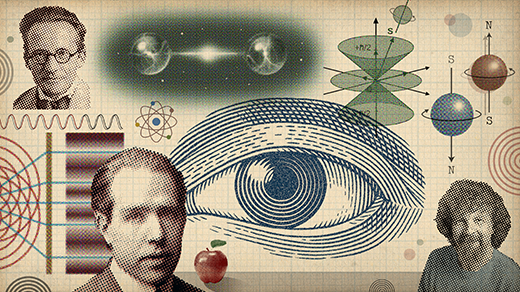What's up in
Quantum interpretations
Latest Articles
Are the Mysteries of Quantum Mechanics Beginning To Dissolve?
Columnist Philip Ball thinks the phenomenon of decoherence might finally bridge the quantum-classical divide.
In Quantum Mechanics, Nothingness Is the Potential To Be Anything
Try as they might, scientists can’t truly rid a space or an object of its energy. But what “zero-point energy” really means is up for interpretation.
‘It’s a Mess’: A Brain-Bending Trip to Quantum Theory’s 100th Birthday Party
Hundreds of physicists (and a few journalists) journeyed to Helgoland, the birthplace of quantum mechanics, and grappled with what they have and haven’t learned about reality.
‘Metaphysical Experiments’ Probe Our Hidden Assumptions About Reality
Experiments that test physics and philosophy "as a single whole" may be our only route to surefire knowledge about the universe.
Experiments Spell Doom for Decades-Old Explanation of Quantum Weirdness
Physical-collapse theories have long offered a natural solution to the central mystery of the quantum world. But a series of increasingly precise experiments are making them untenable.
How Big Can the Quantum World Be? Physicists Probe the Limits.
By showing that even large objects can exhibit bizarre quantum behaviors, physicists hope to illuminate the mystery of quantum collapse, identify the quantum nature of gravity, and perhaps even make Schrödinger’s cat a reality.
A New Theorem Maps Out the Limits of Quantum Physics
The result highlights a fundamental tension: Either the rules of quantum mechanics don’t always apply, or at least one basic assumption about reality must be wrong.
Where Quantum Probability Comes From
There are many different ways to think about probability. Quantum mechanics embodies them all.
Mysterious Quantum Rule Reconstructed From Scratch
The new work promises to give researchers a better grip on the core mystery of quantum mechanics.








